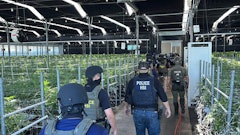

If you’re serious about obtaining a license to cultivate, process and/or distribute cannabis, pay attention to what these five industry experts have to say. Cannabis Business Times asked each to share their insights into what it takes to win a license in an increasingly complex and competitive environment. What follows is a roundup of their best advice, from how to get involved in the community, to competing with the industry Goliaths and more.
Doug Bosswick, General Manager, Next Big Crop; Denver, Colorado
1. Be ready to provide descriptive detail.
“You often have only 30 to 60 days to write a very detailed application. We have developed a ton of standard operating procedures (SOPs) and employee handbooks for cultivation, processing and retail. We take those SOPs and tailor them to the state’s regulations and the client’s facility. If you don’t already have these documents, you don’t have much time to put all this content together. Anyone thinking about applying for a license should be well capitalized, have a good board of advisors and, if necessary, use a consulting company that has all these documents in place and a proven track record for writing winning applications.”
2. Establish relationships with local and state officials.
“Attend major meetings on the state level and local level. It’s very important to get your name and face out there to make the right connections. In these meetings, you’ll hear what the state is looking for. For example, in New Jersey, the state is concerned about patient access to affordable medicine. If you don’t attend those meetings, you won’t be able to tailor your application to align with that.”
Omar Figueroa, Attorney, Law Offices of Omar Figueroa; Sebastopol, California
3. Know the area’s cannabis voting record.
“Notice how the public voted on legislation and any local ordinances affecting cannabis. When you look at California’s Proposition 64 election results, for example, there are certain jurisdictions where public support for cannabis was resounding, but public officials didn’t have the message yet. Those are places that are ripe for starting the licensing of cannabis business in a sane and responsible way.”
4. Reside where you plan to operate.
“Start volunteering in the local community. You will be received much differently after you live somewhere a few months. I have a client who did that, and pretty soon he was rubbing elbows with the mayor because they were both volunteering at a soup kitchen. Eventually, they saw each other at a cannabis meeting and recognized each other. It was organic. My client didn’t scheme to make this happen.”
5. Develop a budget—then double it.
“There are usually cost overruns and delays, so leave a generous margin of error in budgeting. It can take months to get your permit. You must have enough operating capital to survive until the application is approved. In California, it is not a low-barrier-to-entry enterprise. For a sizable grow, meeting all the requirements can easily cost $2 million for rent, consultants, architects and experts on water, traffic, sound and other needs.”
6. Protect your intellectual property.
“Establish a trade secret protection plan. Don’t disclose your trade secrets or SOPs in your application. Identify them as trade secrets. You don’t have to describe SOPs in detail. You can also submit a redacted copy (without the trade secrets) to regulators in case they have a public record request. If they insist, you can also submit under seal and designate the trade secret as proprietary. [Editor’s note: Submitting “under seal” in California allows applicants to meet a regulator’s request to disclose the SOP deemed a trade secret, but keeps it protected from public view if there is a public record request. In other words, it is withheld from the public record.]
“Employees are free to quit and go to the competition, but you can keep them from walking away with proprietary information by making them sign nondisclosure agreements that give you legal recourse.”
7. Make sure your community outreach effort is substantive.
“Outreach should be personal and come [from] people who are going to be on-site. Host a community barbecue with no ulterior motive other than to get to know your neighbors on a human level as opposed to just sending a glossy postcard or having a [public relations] person go door-to-door to drum up support.
“Neighborhood watch meetings are a great way to come together to discuss community issues. Or, if there’s a road association and your project is going to impact a road, it’s important to discuss it before filing anything with a city or county. If the neighbors find out through official channels, they may have misconceptions that could have been easily resolved if there had been one-on-one personal outreach.
“You have to be ready to educate people in your neighborhood about cannabis and how this project is going to be a benefit—not a detriment—and live up to that. Example: In Oakland, Calif., new dispensaries won acceptance by beautifying the neighborhood. They hired security guards to provide security for the whole neighborhood—not just for themselves. They cleaned up the whole neighborhood—not just the area in front of them. The neighbors really began to appreciate them.”
Dina Rollman Chief Compliance Counsel, Green Thumb Industries (GTI); Chicago, Illinois
8. Become familiar with a state’s licensing structure.
“Some states have vertically integrated licenses that allow you to cultivate, process and sell cannabis. Other states break it into three separate licenses, so you might only cultivate cannabis, only process cannabis, only have a retail dispensary or have a combination of those three. In some states, there is a grower-processor license that lets you cultivate and process cannabis in other forms such as an oil, a patch, a tincture or an edible. You might need a separate license if you want to operate a dispensary. Obviously, it’s a lot more expensive to build and operate a cultivation facility than it is to operate a retail facility. That’s why it’s important to understand each state’s licensing structure.”
9. Distinguish yourself from the herd.
“As applications become more competitive, it’s important to think about what makes you special. What will make you stand out in a positive way? Some applicants will highlight their connection to medical cannabis and how it has impacted their own lives or their loved ones. Others highlight their intentions for giving back to the community. One applicant, for example, talked about opening a charter school in a disadvantaged neighborhood in Chicago. Use your application to capture unique aspects that can help you get noticed.”
10. Develop a comprehensive understanding of what it will take to make it to the finish line.
“Because each application is different, expenses can vary. Some markets don’t require you to secure real estate, to have blueprints or drawings of your facility, or to have zoning approval. Some do. Some requirements can be met at little to no expense. Others need to be done by a third party and can drive the cost up. If you have a complicated [business] structure, your attorney fees are generally more expensive than if you are a sole individual.

“The application fees also vary widely. Sometimes they are only a few thousand dollars, or they can be much more substantial. The fee may be refundable or not. ... Know what you’re getting into before you decide to apply.”
11. Emphasize the educational role your company will play.
“[If you are applying in a medical market,]it is a good idea to stress that you intend to educate potential patients and doctors about cannabis as a tool for managing different medical conditions. It shows that you see your role not just as a business owner operating a for-profit business, but that you’re also taking on the responsibility of providing education to the community. Whether or not they become customers, you’re doing something positive to increase education and awareness for the benefit of people’s health and wellness.”
Peter Marcus Communications Director, Terrapin Care Station; Boulder, Colorado
12. Carefully evaluate how you can make a difference wherever you locate.
“We’re located in Colorado, Oregon and Pennsylvania. It sounds so cliché, but each city and state are so different. We applied in Pennsylvania along with about 179 other companies for 12 grower-processor licenses. To date, it was the most competitive process we’ve seen. What was interesting about Pennsylvania (and what we’re starting to see in other states that are creating application processes) is not just a requirement that you prove things you need to be a secure and responsible cannabis company—your security, floor plans, growing standards, pesticide use, financials and all of that—they also want you to show your worth to the state and to the communities in those states.

“Pennsylvania wanted us to show market diversification, employee diversification and community engagement. We’re located in Clinton County, a rural part of the state that has been left behind economically. Veterans are a major part of [its] population. The median income is $19,000 per year.
“This is a town that hadn’t had an influx of new jobs in a long time. We were bringing 45 new jobs, and we asked ourselves what part of the population we could affect the most. With such a high veteran population, we decided to hire veterans as 30 percent of our workforce. We held a job fair and placed a focus on veterans at the fair. We committed $25,000 to refurbishing a veterans’ memorial in Lock Haven, Pa.
“When you’re looking at new applications in new states and cities, you are going to see those applications focus on community engagement. Folks who are thinking about getting into the industry or want to apply for a new license should definitely make community impact a priority.”
13. Don’t assume you can’t win because you’re a small company.
“Writing an application is difficult, and it should be. It’s a new industry and you want only the best actors in the space or it can leave a black eye on the whole industry. It makes sense that it’s as competitive and complex as it is.
“We’re fortunate to have everything in-house. We have our own government affairs, finance, accounting, communications, marketing, creative and purchasing [teams]. We don’t outsource anything. When it comes to applications, it’s an all-hands-on-deck kind of process. Everybody contributes, and then we organize and submit.
“But you don’t have to be set up like we are to win. Local and state governments have diversification plans that are often mindful of smaller businesses. In Longmont, Colo., we were recently awarded one of four new recreational licenses. We were one of three mid-size to large companies picked, and the fourth award went to a smaller company. Governments are aware that there needs to be opportunity for everyone. There are a host of consultants out there who can help you do things right if you don’t have an in-house team to work on these applications.”
Mark J. Gemignani Founder and President, Dominion Builders; Coral Gables, Florida
14. Go big or go home.
“The industry is growing rapidly and many of the larger players are seeking licenses in multiple states. I believe that, over the next two or three years, the industry will be rolled up, consolidated and controlled by several of the larger players. That makes it more difficult for smaller players to get a license because they don’t have the experience, the financial wherewithal and the team that some of these larger players have.
“If you’re going for a license, you need to take an all-or-nothing approach. Don’t just stick your toe in. Jump in and put together a good, strong team. If you don’t, you’re not going to win. You are going up against entities that have won in other states or gotten graded in the top one to 10 applicants in other states. They will take that expertise and experience from state to state until they are licensed everywhere.”
15. Build a diverse, multidisciplinary team—one that includes strong financial partners.
“States are really looking at the strength of your team. You need an investment partner that has the available cash to commit.
“Other necessary resources for a strong team:
- legal expertise,
- a medical director (for medical markets),
- a cultivator (if you are not one) who understands the growing and agricultural side,
- a record of business success to prove you’re capable of putting something like this together, and that you can get it up and running immediately.
“Hit diversity very hard because it carries a lot of weight in your application. Include women and minorities on the team and among the vendors used for design, construction and operation. The real estate needs to be tied down. These are really the key points, and you need to be strong in every single one of them.”
























